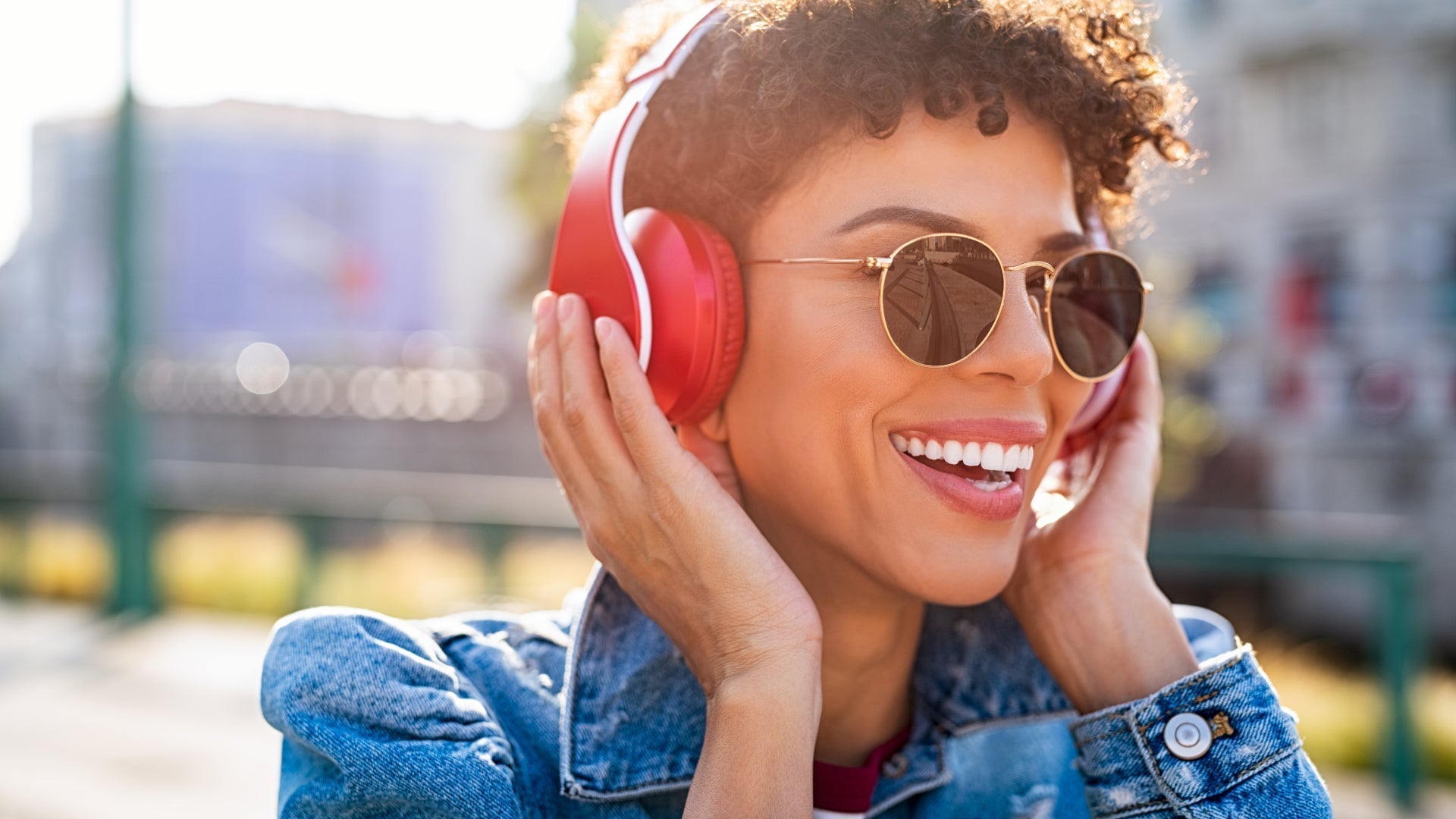
Can You Do More To Clean Up Your Skincare Routine?
Climate change is a massive concern for everyone, so what better time to clean up your beauty regime than now?
You may think that by recycling glass bottles and composting food waste you’re more than doing your bit for the environment, but did you know that your skincare routine could be causing just as much damage to the world as what does (or more importantly, does not) go in your trash?
Thankfully, a little beauty diligence goes a long way to helping make your world a better place. And great news: the following tips make it easy for you to switch to smarter ingredients and eco-savvy skincare habits.
Let's do this.
1. Steer Clear Of Parabens
Parabens are preservatives that prevent harmful stuff growing in your beauty products – think bacteria, fungi, mold and the like. Granted, this may sound like the kind of ingredient you should totally get on board with, but the problem with parabens is they have way too many faults up their sleeves for their preservative powers to be worth it.
Often found in beauty products containing a significant amount of water (eg. shampoo, conditioner, cleanser and moisturizer), parabens can be very irritating to the skin, but more worryingly they’ve been linked to serious health concerns including thyroid issues, hormone-related cancers, reproductive disruptions and obesity. So, there’s the first red light, right there.
Parabens are also nasty little beasts when it comes to the environment. According to the Environmental Working Group (EWG), parabens have been detected in surface waters, fish and sediments. Even the lowest levels of butylparaben – one of the most commonly used parabens in cosmetics – can cause significant harm and even kill coral.
The good news is many beauty companies have switched out parabens for cleaner alternatives, but they’re still out there so keep your eyes peeled for any ingredient containing the word paraben in its name. BTW, we’re a totally paraben-free company and use much cleaner preservatives like sodium benzoate and ethylhexylglycerin in our skincare products. You can thank us later.
2. Recycle As Much As Possible
Before you throw your empty boxes, bottles, tubs and tubes in the trash, take a minute to check whether or not they're recyclable. There are many different symbols to look for which indicate a product's recycling capabilities and we know they can be confusing, but a couple of minutes is all it takes to ensure your empties end up in the right place.
Glass is always an awesome, eco-friendly option and all of our serums are packaged in glass bottles that are full recyclable. Not sure about your other beauty products? Then head to the United States Environmental Protection Agency (EPA) for the lowdown on plastics, cardboard and more.
3. Reduce Your Beauty Miles
You might love your K-Beauty skincare creams more than life itself, but has it ever crossed your mind how many thousands of miles those products might have travelled in order to beautify your skin? The answer is many. In fact, it’s just over 6,500 miles from Korea to the US, which equates to a helluva lot of fuel consumption and consequent air pollution.
To help reduce your carbon footprint and lessen the impact of your skincare choices on the environment, stick with home-grown beauty products. Not to blow our own trumpets (again!) but all TruSkin products are formulated and bottled in the US. Group hug.
4. Ditch Those Cotton Rounds
While we’re on the subject of beauty miles, it’s not just those lotions and potions you need to evaluate. Chances are, your trusty cotton rounds have also taken a pretty long trip to reach your vanity. Not ideal. Also, according to the World Wildlife Fund (WWF), it takes around 20,000 liters of water to produce just over 2lbs of cotton. Add all this to the fact that cotton rounds are not compostable and that cotton farming is responsible for around 24 percent of insecticides worldwide and suddenly that innocent looking fluffy stuff starts to look like one hot mess for the environment.
So, what’s the answer to this little conundrum? First up, use spray toners like our Daily Facial Rose Water Toner or Daily Facial Toner because these don’t require the use of cotton rounds (clever, right?). You could also invest in some eco-friendly, reusable makeup remover pads that can be thrown in the laundry after each use. Amazon has plenty of options to choose from or you could try Ecoroots Organic Reusable Facial Rounds.
5. Be A Cruelty-Free, Beauty Vegan
If you care about animals as much as you care about the world (and in fact, don’t they kind of come as a package, anyway?), you have to avoid products that contain animal by-products and ingredients, or have been tested on animals. No question.
According to the United Nations Environment Programme (UNEP), animal products are the key cause of climate change due to the amount of water, land and energy animals require to be farmed, killed, processed and transported. If you'd like to steer clear of animal by-products and ingredients, here's a list of those to avoid, courtesy of People For the Ethical Treatment of Animals (PETA).
Meanwhile, around half a million animals suffer and die each year through cosmetic testing according to Humane Society International (HSI).
Frankly, we think this is unacceptable which is why we’re proud to be Leaping Bunny approved – and that includes every single one of our skincare products. The Leaping Bunny logo (below) is the only internationally recognized symbol which guarantees that no animal tests were carried out in the development of any product displaying it.
6. Give Oxybenzone & Octinoxate A Wide Berth
When it comes to ingredients that affect both your health and the environment, oxybenzone and octinoxate are double trouble.
Oxybenzone and octinoxate are organic compounds that absorb light very effectively. This makes them two of the most common UV filters used in chemical sunscreens. They’ve been used and approved by the FDA since the early ‘80s, but after a bill to ban their sale and distribution in Hawai’i was passed in 2018, the world became blatantly aware of their potential damage to marine life and in particular, coral reefs.
“Oxybenzone and octinoxate cause mortality in developing coral, increase coral bleaching that indicates extreme stress… and cause genetic damage to coral and other marine organisms,” cites the bill. Yikes.
Furthermore, oxybenzone is just as nasty to your health as it is to marine life. For one thing, it’s the most common skin irritant in suncare, but even more scary is that it may seriously disrupt hormone production, potentially causing all manner of problems like thyroid issues, certain cancers and reproductive harm. The fact that the Centers for Disease Control and Prevention (CDC) estimates that oxybenzone can be detected in the urine of almost all the population makes this a very worrying prospect indeed.
The good news is the FDA are continually working towards confirming (or rejecting) the safety of oxybenzone, octinoxate and 10 other chemical sunscreen ingredients. In the meantime, stick with products containing zinc oxide and/or titanium dioxide. These are the only two active sunscreen ingredients currently deemed safe and effective.
7. Reduce Your Shower Time
Climate changes like soaring temperatures and rising sea levels play havoc with the world’s water supplies, so do your bit to conserve water and you’ll be helping to protect the future of your planet – just like that.
Fun fact: the average shower uses around two gallons of water per minute. This means an eight minute shower (the average duration for an American adult) uses a solid 16 gallons per day, or 480 gallons per month. Now, let’s say you were to cut your shower time by one minute – just one minute, that’s all we ask. This would save 60 gallons of water every month, which is a significant amount of water for one person to save, if you ask us. Set the timer on your phone to seven minutes next time you take a shower and see if it's manageable. We bet it totally is.
Come on people, your world needs you.









